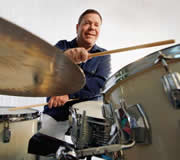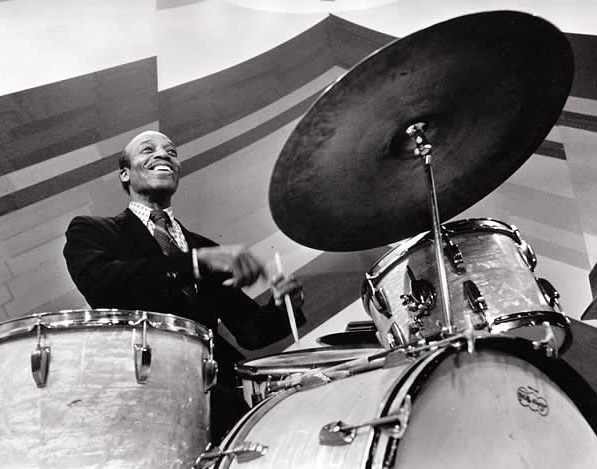DICK CLARK
Friday, April 20th, 2012Television host, producer and broadcast pioneer Dick Clark has died at the age of 82.
Clark was one of a handful of Philadelphia-born broadcasters and performers who made it to the national stage–Ed MacMahon, of course, was another–and he pretty much stayed there, front and center, until felled by a stroke in 2004.
Those who knew Clark have been unanimous in their praise of him as a human being, almost granting him saintly status. Entertainer Tony Orlando claims that what you saw in Clark’s onstage persona was exactly the way Clark was in real life. Interesting observation. Perhaps Orlando tied too many ribbons around too many old oak trees.
Philadelphia radio host Bob Horn was the creator and first host of Dick Clark’s later claim to fame, television’s “American Bandstand.” Horn, who hosted from 1952 to 1956, was ousted due to a drunk driving and statutory rape charge. Though acquitted from the latter, Horn’s career was over. Clark replaced him as the host of “American Bandstand” in July of 1956. It spent a year as a local program emanating from Philadelphia until it was picked up for national broadcast by ABC in 1957. The program lasted–probably too long–in various guises until 1989.
Clark was in the right place at the right time. Certain powers that be in this country were quite, quite concerned about the newfound popularity of rockers like Elvis, Jerry Lee, Chuck Berry and the like, because, as you know, they were all no-account hop-heads who inspired juvenile delinquency. The world needed more personalities like Pat Boone, for Elvis to have his balls cut off by being railroaded into the army, and for a fresh-faced “rock host” who might somehow but a “safe face” on all this lurid music.
Clark was the guy, and no doubt he was sincere in his passions. Indeed, so honest-looking and fresh-faced was he, that he escaped the entire payola scandal–paying radio guys for airplay–of the late 1950s. Pioneer rock jock Alan Freed had his career ruined by the scandal. Clark simply said he had no knowledge of any artist he had an interest in being involved in such a terrible affair.
Dick Clark’s real contribution to television was as a producer. He was there at the beginning with reality shows, beauty pageants, blooper programs, dozens of game shows, and the legendary New Year’s eve broadcast. None of this was art, nor did it pretend to be. Clarks’s talent was in making money. Lots of it.
Some years back, I had an idea for a reality television show called “The World’s Greatest Drummer.” The weekly series would pit drummers–of all ages–against one another in competition, playing before celeb/drummer judges like Max Weinberg, Charlie Watts, Ringo, etc. Several production companies were interested, but before seriously proceeding, I wanted to take the concept to “the expert.”
While hosting “Bandstand,” Clark had a number of dancers who appeared week after week and ended up with their own followings and fan clubs. One of these vastly popular “regulars” was a West Philly guy named Tommy DeNoble, who eventually had a decent singing career and appeared in films like “Ship of Fools.”
I drummed for Tom way back when, and thought that might help me gain entrance into the offices of “the world’s oldest teenager.” I sent a note to his office, and lo and behold, Dick Clark himself called me on the telephone.
He was more than nice, stressed that he did not use email and responded to letters, etc., via a personal telephone call, inquired about our mutual friend DeNoble, and then addressed the issue of “The World’s Greatest Drummer.” Though he liked the idea, he maintained that because the program was limited to just drums, that the entire concept was just too marginalized to ever reach a wide, general audience. “What would you do as a follow-up?” he asked. “The ‘World’s Greatest Violin Player’?”
He was right and I knew it, and I’ll never forget that he took the time to respond in the manner he did.
Yes, Clark was in the right place at the right time, and that’s great for a start. But he had the vision, strength and determination to succeed, and to succeed for decades in a medium that often spits people out after mere moments.
More importantly, I think Dick Clark really and truly liked television. It showed.






